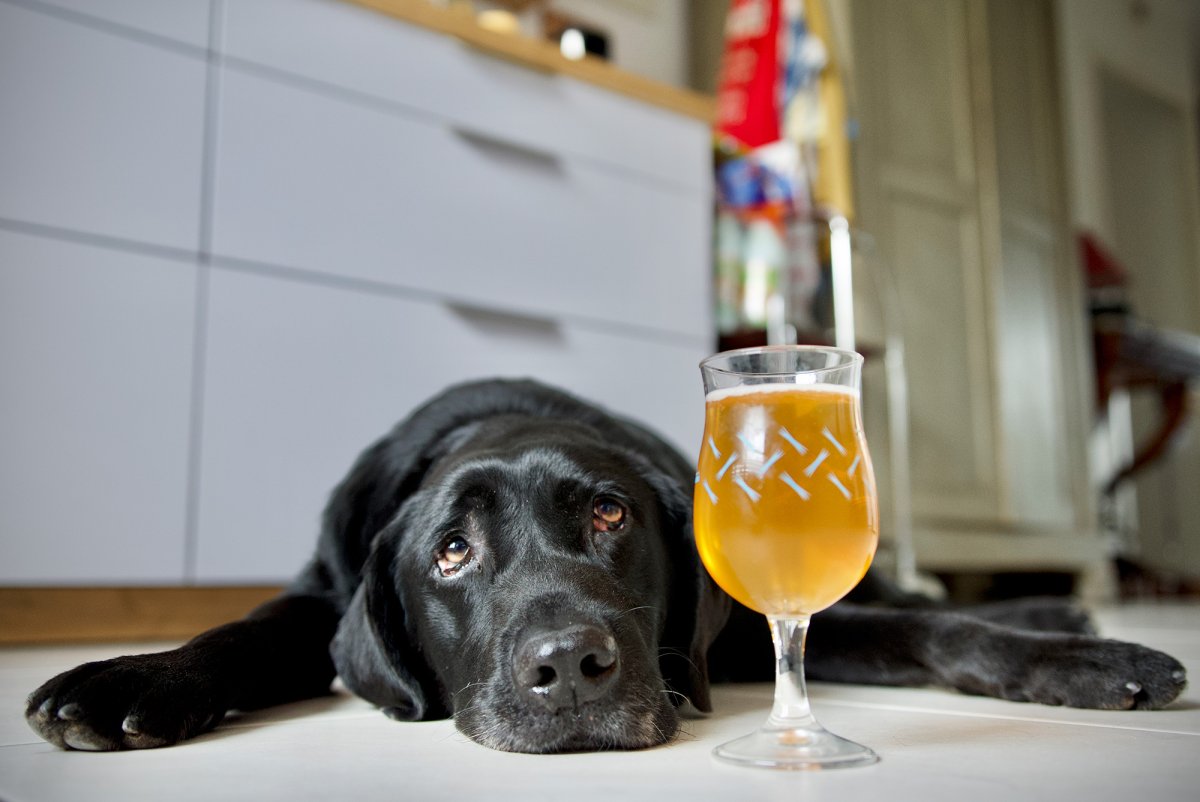When one contemplates the nature of companionship with dogs, it is imperative to acknowledge that our canine friends are not merely pets; they are family members. However, an alarming trend has surfaced where some owners, perhaps under the guise of humor or misguided affection, have contemplated the suitability of offering alcoholic beverages to their dogs. This act raises an essential question: Is giving your dog alcohol considered animal cruelty? The answer is unequivocally yes, and the ramifications are both shocking and sobering.
First and foremost, the biological implications of alcohol consumption in dogs cannot be overstated. Just like humans, dogs metabolize substances, but their physiology is markedly different. Dogs possess a significantly lower tolerance for ethanol—the active ingredient in alcoholic drinks. While a human might enjoy a glass of wine with dinner, a small sip can induce withering consequences for a dog. Symptoms of alcohol toxicity can manifest in a litany of ways, ranging from mild to life-threatening conditions.
The initial signs of alcohol poisoning in dogs may include disorientation, excessive lethargy, vomiting, and incoordination. As the condition progresses, it can lead to more severe symptoms such as hypothermia, seizures, respiratory distress, and, in extreme cases, coma or death. The disparity between the reactions of humans and dogs to alcohol is fundamental; what provides one species with a sense of relaxation can be catastrophic for another.
To further understand the perils, consider the specific types of alcoholic beverages available. Beers, wines, and spirits each contain varying levels of ethanol. Beer, which may seem innocuous, can still harbor enough alcohol to cause harm. Some brews contain additives or flavorings, such as hops, which are particularly toxic to dogs. Wine, especially when imbued with residual sugars, can lead to grave side effects as it affects their delicate digestive systems. Stronger spirits escalate the risks exponentially, as a mere drop could result in acute intoxication. Each type of beverage presents its own unique hazards, but all share a common thread of danger for our four-legged companions.
Moreover, the notion of ‘sharing’ a drink can be insidiously deceptive. Many fervently believe that a small amount can be harmless, a conclusion drawn from anecdotal evidence rather than scientific fact. The reliance on such rationalizations starkly illustrates a disconnect from a compassionate understanding of a dog’s well-being. This cavalier attitude not only jeopardizes health but also enforces an insidious expectation that animals can endure human whims, further entrenching the notion of animals being lesser beings deserving of our errant indulgences.
Animal cruelty, in its manifold forms, often stems from ignorance rather than malice. In this case, the act of giving dogs alcohol embodies an unintentional but insidious form of cruelty. The lack of awareness surrounding the dangers presents an opportunity for education. To combat this, communities should prioritize outreach and disseminate information that elucidates the risks involved in treating pets as human companions in all respects—including the consumption of ethyl alcohol.
Beyond the physiological consequences, there exists an ethical dimension to this discussion. Dogs are sentient beings with intricate emotional landscapes. They experience fear, anxiety, and distress—sensations that are exacerbated in situations of neglect or harmful treatment. Animals possess rights that deserve acknowledgment; therefore, subjecting them to substances that clearly jeopardize their well-being shows a blatant disregard for their agency. By extending compassion toward our animals, we reinforce the bond of trust that is fundamental for a healthy human-animal relationship.
Furthermore, the impact of normalized animal intoxication extends beyond individual cases. It can foster a societal mindset that trivializes the welfare of animals. When such behavior is accepted—be it in social settings or as a comedic trope—it diminishes the serious conversation surrounding responsible pet ownership and animal rights. It is imperative to draw a line and assert that animal cruelty, in all its forms, is intolerable.
As advocates for animal welfare, it is our duty to educate others and emphasize the importance of safeguarding our pets from harmful substances. Engaging community forums, organizing workshops, and utilizing social media platforms can amplify our message. As responsible pet owners, we must be diligent in providing an environment that nurtures well-being rooted in knowledge and understanding.
In conclusion, the question of whether giving dogs alcohol rises to the level of animal cruelty can be answered with conviction. The potential for harm, the ethical implications, and the detrimental precedent it sets are all components of a larger dialogue about how we treat animals. To genuinely love and care for our canine companions means advocating for their health, happiness, and safety. By refraining from offering them alcohol—and educating others about its dangers—we not only protect their physical health but also enrich the quality of their lives, allowing them to thrive in a secure and loving environment. Let us champion a narrative that prioritizes compassion over complacency and puts the welfare of our pets above all else.








